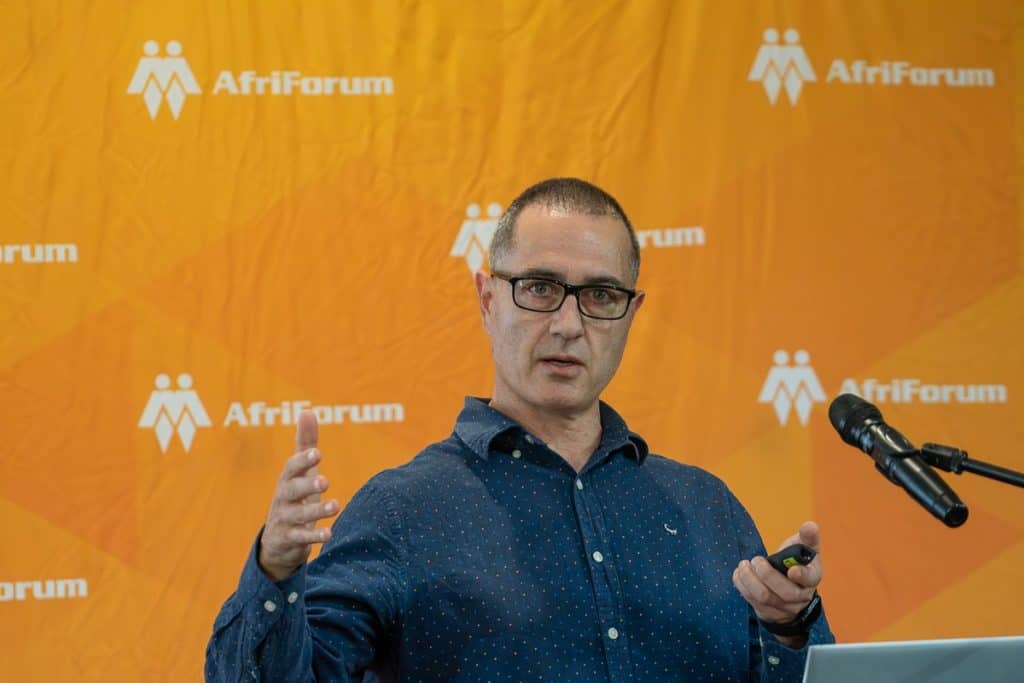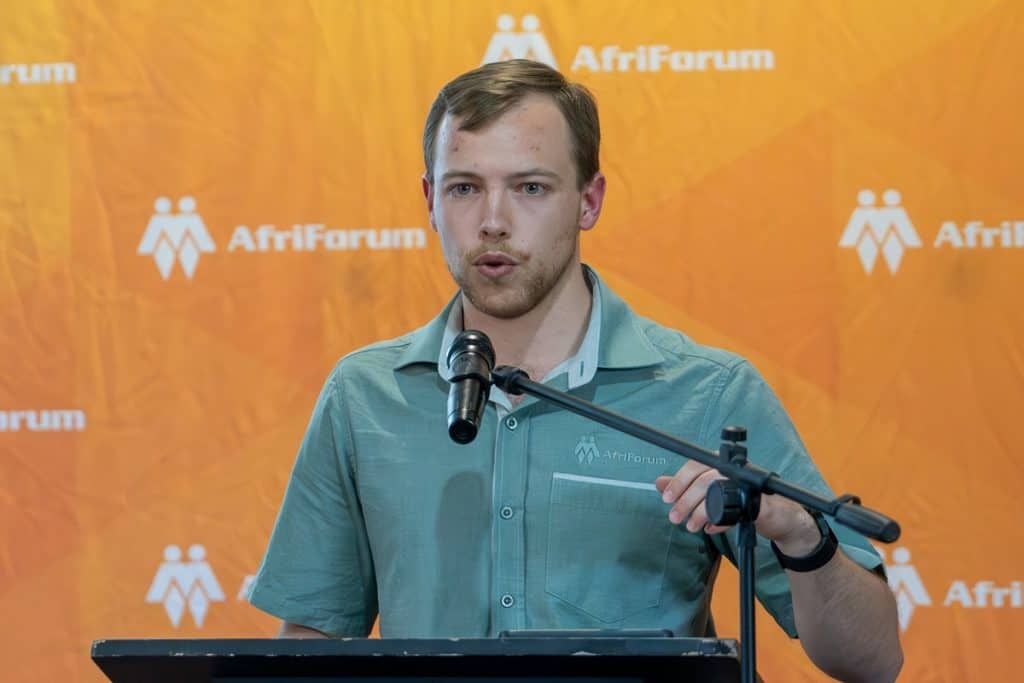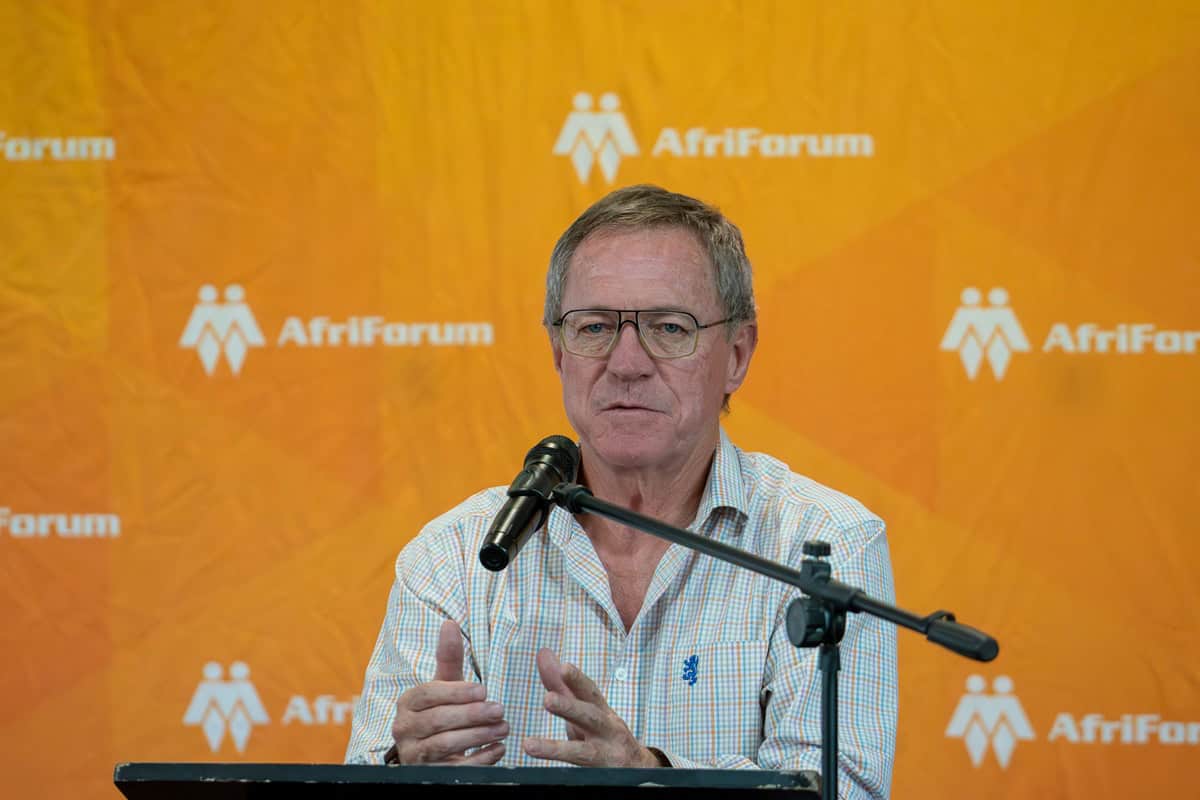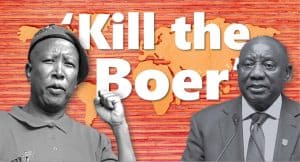This is what the health industry in SA should look like– Dawie Roodt presents an alternative to NHI at the AfriForum conference
Overall privatisation of the South African health industry – this is what economist Dawie Roodt believes is the only workable alternative to the envisaged National Health Insurance (NHI). Roodt presented his proposal for a new approach to healthcare in South Africa at AfriForum’s conference on the NHI in Pretoria today. The NHI is, according to Roodt, an unattainable ideal as the South African government lacks the money and ability to successfully implement this plan.
Roodt’s proposal entails, among other things, that legislation be introduced that makes membership of a medical aid compulsory for all South Africans. Accordingly, existing medical aid members will be able to continue their membership unhindered. The rest of the population will then, after the privatisation of all the medical services in the state, be grouped into one of at least three private funds in order to gain access to limited, yet high quality private medical care. The funding for this will be drawn from the state’s health care budget, which is currently pumped into struggling or dysfunctional hospitals or clinics. Roodt further argues that patients who then require further medical care should be accommodated in training hospitals.
Roodt was one of many leading voices in the healthcare industry who gathered today at the invitation of AfriForum to discuss solutions to the impending healthcare crisis, which will result from the implementation of NHI. This comes amid growing concern about the implementation of NHI after pres. Cyril Ramaphosa renewed his commitment to sign the NHI Bill into law soon.
Vernon Chorn (CEO of Unity Health) and André Jacobs (author of the book Medical schemes explained) both questioned the feasibility of NHI and pointed to the dangers of its implementation.
Chorn pointed out that South Africa’s aging population, where people no longer contribute to the country’s Gross Domestic Product (GDP) after retirement, also makes the viability of large-scale social programs, such as NHI, impossible. The older the population gets – and the smaller the working population – the more pressure is put on the healthcare industry. According to Chorn, aspects like these lead to a large-scale exodus of educated healthcare professionals, which presents further challenges for the industry.
“The NHI simply will not survive under the current projections, as it requires a significant amount – approximately R600 billion – to be successfully implemented. There is no way to raise this amount without raising taxes and this will ultimately result in a weaker GDP,” says Chorn.

Jacobs, for his part, pointed out the numerous uncertainties that currently exist about NHI and emphasized that the implementation of NHI will eventually lead to a system in which greater dependence on the state will be established, while freedom of choice of patients will be deprived. Jacobs also believes that a two-pronged strategy – in which prevention and treatment are applied – will offer a workable solution for the currently struggling South African health system.

According to Louis Boshoff, campaign officer at AfriForum, there are several scenarios that can result from the implementation of NHI, therefore it is important to be fully prepared for all the possibilities. “AfriForum is still optimistic that the NHI Bill can be stopped through public pressure and lawsuits, but South Africans must still be prepared should a healthcare crisis be brought about by NHI,” says Boshoff.
“Since 2019 AfriForum has launched a total of 53 campaigns against the adoption of NHI. All the legal channels have been followed to oppose it, and if the president signs the bill, AfriForum will challenge it in court,” he concludes.

Click here to listen to the discussions about NHI.
















 @luza
@luza







